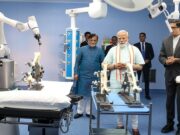
Last Updated:
Bengaluru’s Central Silk Board Traffic Set to Ease with New Flyover. (Photo: Times Now)
The flyover project became part of the Phase 2A tender, awarded in July 2021, marking a significant milestone.
There will soon be a significant respite from the congestion at Bengaluru’s Central Silk Board junction.
The 3.3-kilometer road from Ragigudda to Central Silk Board is expected to open soon, according to the Bangalore Metro Rail Corporation Limited (BMRCL). By the end of May, three out of the five ramps that make up the flyover, which runs from Ragigudda to Central Silk Board, are expected to be complete, as per Deccan Herald.
The BMRCL is constructing the flyover in two phases. According to BMRCL officials, the first three ramps, labelled A through E, connecting Jayadeva to Hosur Road and KR Puram, will be completed by the end of May, the report added.
“The ramps D and E, which will bring traffic from KR Puram to BTM Layout and Ragigudda, will be completed by December. This will run parallel to the ORR metro line,” a senior BMRCL official was quoted as saying by Deccan Herald.
The construction of the 17.13-km Blue Line section from Silk Board to KR Puram on the Outer Ring Road was delayed even though the central government approved the Detailed Project Report (DPR) for this line under Phase 2A (Outer Ring Road to the Central Silk Board Line) in 2017. This was because no tenders were awarded for the next few years.
The flyover project was included in the Phase 2A tender that was granted in July 2021. Officials from BMRCL said that the civil works will cost Rs 497.77 crore in total. As there was no split in the rail and road works contract, building the rail and road viaducts was covered by a single tender. A few examples of the components included in this extensive scope include two sets of bearings, road and rail piers, piles and pile caps.
Meanwhile, Metro officials estimate that once the route is operational, commuters’ journey times through Silk Board will be reduced by around 10 minutes on an average.
This is useful because the Silk Board is frequently crowded, especially in the morning and evening. “This can bring traffic congestion down by about 40 per cent,” Shiva Prakash Devaraju, Deputy Commissioner of Police (Traffic), said.












































